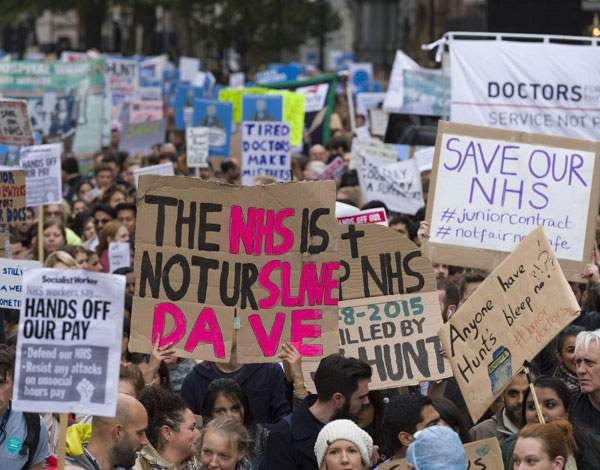
Charities are making inroads into healthcare, but are benefactors right to worry about propping up the state? Peter Harrison-Evans digs deeper

First it was on, then it was off again. Junior doctors have postponed the 48-hour strike they had planned for tomorrow, the second in a series of proposed walk-outs. Given the focus of the dispute on working hours and conditions, the current industrial wrangling is clearly symptomatic of wider issues around funding and capacity in the NHS.
The charity sector has been posited as a potential solution to these problems, particularly during the winter beds crisis which began in earnest in 2014/15 and continued this Christmas. For philanthropists supporting charities in healthcare, this can raise ethical or mission-oriented concerns about whether their funding is simply propping up the publically-funded health system.
These are legitimate concerns, and reflect perennial debates around the interaction of public and philanthropic funding. In response to this, and the evident state of flux of the health sector, charities working in healthcare are becoming increasingly aware of their need to promote and evidence how their distinctive approaches and assets can add value to the health system.
Examples of the additional expertise, skills and reach that charities can bring are not difficult to find — be it early-intervention services that relieve future pressure, specialised and tailored care for people in their homes, or advocacy for patients. However, some organisations have struggled to articulate how the services and interventions that they provide go beyond rather than substitute for the vital work of the NHS.
One initiative that is looking to tackle these issues head on is Doing the Right Thing, a project developed by The Richmond Group of health charities and other partners, with the aim of identifying where the charity sector contributes most effectively to improved outcomes within the health system. NPC has been working with these charities — which include Age UK and the British Heart Foundation — to review evidence on the effectiveness of their interventions and identify where the sector’s strengths lie.
With a better understanding of where health charities make the greatest difference, these organisations have a compelling case for contributing to (and even leading) changes in health care. Doing the Right Thing, for instance, has begun to establish how health charities add value. Social sector organisations are typically better integrated into local communities and enjoy greater trust and better communication with the general public.
Furthermore, and perhaps more relevant for philanthropists working this area, charities are in a better position to innovate and take risks in developing new approaches. Richmond Group member Arthritis Research UK has successfully piloted new approaches to rehabilitation for arthritic conditions, including self-managed rehab. The potential for cost savings in the NHS are clear.
Far from papering over the cracks across a squeezed NHS, charities at their best can target their interventions and bring benefits across the wider system. Get this right and they can contribute to improved health outcomes across the UK. With demand going up and resources scarce, such improvements have never been more important.
For philanthropists this can allay fears that their money may merely be subsidising the state. Instead by developing their evidence base around high-impact interventions, health charities can attract forward-thinking funders who are looking to foster system-wide change – change that can help set a new, more hopeful trajectory for healthcare in the UK.
Peter Harrison-Evans is a consultant at NPC






